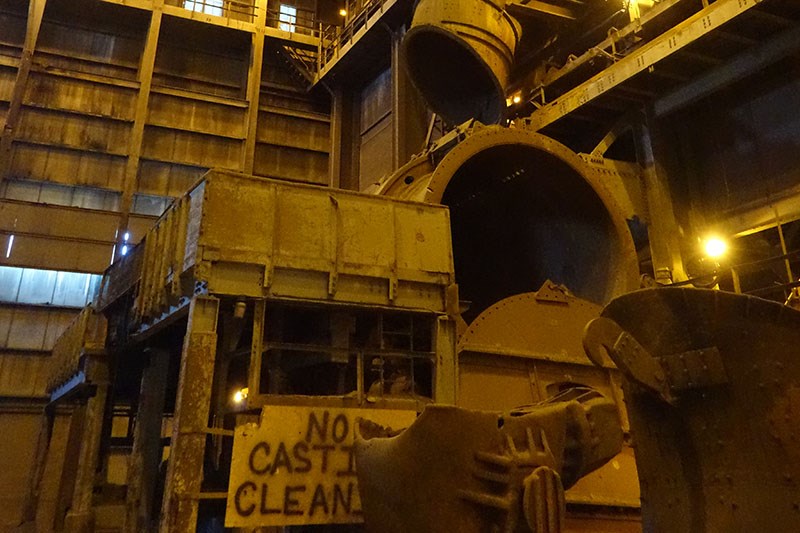Vale Manitoba Operations has lost about a third of its workforce since December of last year, with about 60 per cent of those job cuts resulting from reductions at the end of 2017 and 127 layoffs July 31 due to the smelter and refinery shutting down operations permanently.
In a Dec. 17 email to the Thompson Citizen, Vale’s manager of corporate and Indigenous affairs for Ontario and Manitoba Ryan Land confirmed that the company’s Thompson employee headcount – including unionized hourly workers and staff – is now 870. This is 430 fewer than the 1,300 workers Vale had on their payroll in Thompson in December 2017. About 120 unionized workers lost their jobs at the end of 2017 as a result of the Birchtree Mine being put on care and maintenance a couple of months earlier. Apart from about 250 layoffs in the past 12 months, another 180 Thompson positions have been cut as a result of people taking early retirement, resigning and from the elimination of non-unionized staff positions.
Forty-eight layoffs that had been planned for Dec. 31 were rescinded, Land said.
“Due to ongoing attrition and anticipated demand for a mining workforce in Thompson, Vale made the decision to retain the hourly employees that would have been affected on Dec. 31,” he wrote. “We do still have a small number of staff employees affected by the adjustment as we fully transition to [a] mining and milling-only operation.”
Despite fewer layoffs than had been anticipated, United Steelworkers Local 6166 president Warren Luky said 2018 was an extremely challenging year for the union, whose ranks have been whittled down to around 600 members.
“The layoff numbers … are not a true reflection on our job losses as these numbers fluctuate almost every day,” he wrote in the union’s December newsletter. “This drastic reduction is a shock to many of our members and to our community as a whole, making our union’s strength and solidarity all the more necessary now.”
Luky said Dec. 11 that these numbers also fail to reflect the experienced, senior miners who won’t be leading the workforce into 2019.
“They took early retirement packages,” he said. “The anomaly is not unusual across Western Canada, to have the baby boomers leaving the workplace … but in the mining industry, where a lot of it is a knowledge-based and specialized, it’s going to be a very interesting challenge going into the New Year.”
Luky also said that Vale’s recent management restructuring is making it harder for the union to successfully advocate on behalf of its members, since local managers like Mark Scott have been replaced by higher-ups that are also responsible for mining operations outside of Thompson.
Now that Alistair Ross is stepping down from his position as director of North Atlantic mining operations after five months on the job, Luky said they will be negotiating with an new group of company leaders in 2019.
In December’s USW Local 6166 newsletter, Luky said a good example of the disconnect between the needs of the community and the company’s bottom line is how Vale keeps an “unacceptable” number of contract workers on site at a time when union members are struggling.
“While we can all respect people working to feed their families, contractors do not pay taxes to our community, or contribute to our local economy by simply eating at our restaurants,” he wrote. “This model is not a sustainable or robust plan for our town or our workers.”
Looking ahead to 2019, Luky anticipates that another small round of workers could be let go once they wrap up asset recovery operations at the refinery.
Otherwise, he encourages his fellow Steelworkers to stay safe in 2019.
“We’ll work very hard with the company to make sure everybody goes home at the end of the day safe,” he said on Dec. 11. “That’s our first and primary objective and then we’ll be at the bargaining table with the company also, which will be one of the other bigger challenges.”




